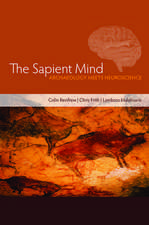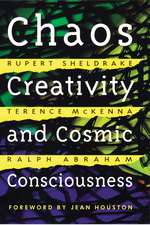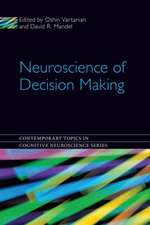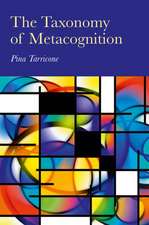Handbook of the Psychology of Science
Editat de Gregory Feist, Michael Gormanen Limba Engleză Hardback – 13 dec 2012
Highly recommended."--Choice: Current Reviews for Academic Libraries
This handbook is the definitive resource for scholars and students interested in how research and theory within each of the major domains of psychologyodevelopmental, cognitive, personality, and socialohave been applied to understand the nature of scientific thought and behavior. Edited by two esteemed pioneers in the emerging discipline of the psychology of science, it is the first empirically based compendium of its time. The handbook provides a comprehensive examination of how scientific thinking is learned and evolves from infancy to adolescence and adulthood, and combines developmental and cognitive approaches to show the categorical similarities and differences in thinking between children, adolescents, adults, and scientists.
Chapters highlight the breadth and depth of psychological perspectives in the studies of science, from creativity and genius, gender, and conflict and cooperation, to postmodernism and psychobiography. A section on applications offers findings and ideas that can be put to use by educators, policymakers, and science administrators. Contributors examine the importance of mental models in solving difficult technical problems, and the significance of leadership and organizational structure in successful innovation. The final section of the book is devoted to the future of this new field, focusing on how to continue to develop a healthy psychology of science. Key Features:
Presents the only empirically based compendium of current knowledge about the psychology of scientific thought and behavior Edited by two pioneers in the discipline of psychology of science Describes how scientific thinking is learned and changes throughout the life span Addresses creativity and genius, gender, conflict and cooperation, postmodernism, and psychobiography Covers applications of the psychology of science that can be used by educators, policymakers, and science administrators "
Preț: 798.56 lei
Preț vechi: 928.56 lei
-14% Nou
152.82€ • 165.94$ • 128.37£
Carte tipărită la comandă
Livrare economică 22 aprilie-06 mai
Specificații
ISBN-10: 0826106234
Pagini: 544
Dimensiuni: 175 x 257 x 33 mm
Greutate: 1.07 kg
Ediția:New.
Editura: Springer
Textul de pe ultima copertă
This handbook is the definitive resource for scholars and students interested in how research and theory within each of the major domains of psychology?developmental, cognitive, personality, and social?have been applied to understand the nature of scientific thought and behavior. Edited by two esteemed pioneers in the emerging discipline of the psychology of science, it is the first empirically based compendium of its time. The handbook provides a comprehensive examination of how scientific thinking is learned and evolves from infancy to adolescence and adulthood, and combines developmental and cognitive approaches to show the categorical similarities and differences in thinking between children, adolescents, adults, and scientists.
Chapters highlight the breadth and depth of psychological perspectives in the studies of science, from creativity and genius, gender, and conflict and cooperation, to postmodernism and psychobiography. A section on applications offers findings and ideas that can be put to use by educators, policymakers, and science administrators. Contributors examine the importance of mental models in solving difficult technical problems, and the significance of leadership and organizational structure in successful innovation. The final section of the book is devoted to the future of this new field, focusing on how to continue to develop a healthy psychology of science. Key Features:
Presents the only empirically based compendium of current knowledge about the psychology of scientific thought and behavior Edited by two pioneers in the discipline of psychology of science Describes how scientific thinking is learned and changes throughout the life span Addresses creativity and genius, gender, conflict and cooperation, postmodernism, and psychobiography Covers applications of the psychology of science that can be used by educators, policymakers, and science administrators "

















